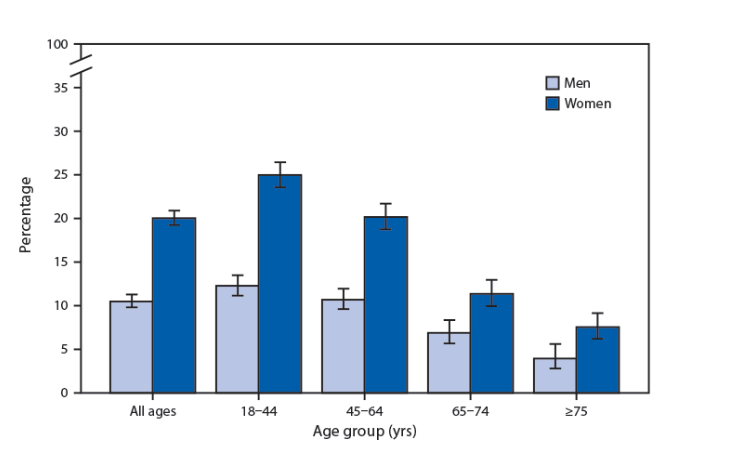
New from CDC
CDC Launches New Weekly COVID-19 Surveillance Report
The Centers for Disease Control and Prevention (CDC) is modifying existing surveillance systems to track COVID-19, and posted the first of what will be a weekly surveillance report called, “COVIDView.” The report, updated each Friday, will summarize and interpret key indicators, including information related to COVID-19 outpatient visits, emergency department visits, hospitalizations and deaths, as well as laboratory data.
COVID-19 in Racial and Ethnic Minority Groups
The effects of COVID-19 on the health of racial and ethnic minority groups is still emerging; however, current data suggest a disproportionate burden of illness and death among racial and ethnic minority groups. A recent CDC MMWR report included race and ethnicity data from 580 patients hospitalized with lab-confirmed COVID-19 found that 45% of individuals for whom race or ethnicity data was available were white, compared to 55% of individuals in the surrounding community. However, 33% of hospitalized patients were black compared to 18% in the community and 8% were Hispanic, compared to 14% in the community. These data suggest an over representation of blacks among hospitalized patients. Among COVID-19 deaths for which race and ethnicity data were available, New York City.
Although the rate of unintended pregnancy is decreasing in the United States, it remains high, with nearly half of pregnancies unintended. Increasing access to and promoting correct and consistent use of contraception is a priority strategy to reduce unintended pregnancies. HIV infection continues to be a major public health issue in the United States, with approximately 80% of new infections among women attributed to heterosexual contact. HIV infection is associated with adverse pregnancy outcomes for both the mother and child, including increased morbidity during pregnancy and perinatal HIV transmission. Therefore, prevention of both unintended pregnancy and HIV acquisition is critical among women at high risk for HIV infection.
Each year in the United States, about 700 women die during pregnancy or in the year after. Every pregnancy-related death is tragic, especially because most are preventable. Conditions such as weakened heart muscle, thrombotic pulmonary embolism, and high blood pressure contributed to a significantly higher proportion of pregnancy-related deaths among African American women than among white women.
The Teen Access and Quality Initiative: Improving Adolescent Reproductive Health Best Practices in Publicly Funded Health Centers
Quality adolescent sexual and reproductive health (ASRH) services play an important role in supporting the overall health and well-being of adolescents. Improving access to this care can help reduce unintended pregnancies, sexually transmitted diseases (STDs), and human immunodeficiency virus (HIV) infection and their associated consequences, as well as promote health equity. The CDC funded three grantees to implement a clinic based ASRH quality improvement initiative complimented by activities to strengthen systems to refer and link youth to ASRH services. The purpose of this study is to describe the initiative and baseline assessment results of ASRH best practice implementation in participating health centers.
Total and High-density Lipoprotein Cholesterol in Adults: United States, 2015–2018
During 2015–2018, the prevalence of high total cholesterol in U.S. adults was 11.4%. No significant difference was seen in the prevalence of high total cholesterol between men (10.5%) and women (12.1%). The prevalence was highest among adults aged 40–59 (15.7%) compared with those aged 20–39 (7.5%) and 60 and over (11.4%). Adults aged 60 and over also had a higher prevalence of high total cholesterol than adults aged 20–39. No significant differences were seen between race and Hispanic-origin groups in the prevalence of high total cholesterol among adults.
Snapshot
|
|---|
Federal Agencies
Health Observances, May 2020
American Stroke Month
Lupus Awareness Month
Arthritis Awareness Month
National Teen Pregnancy Prevention Month
Preeclampsia Awareness Month
National Women's Check Up Day
Fibromyalgia Awareness Day
World No Tobacco Day
|
|---|






















.png)












No hay comentarios:
Publicar un comentario